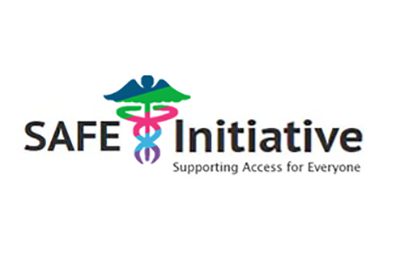An interprofessional and community-engaged panel of experts has published the first peer-reviewed consensus statement establishing healthcare standards for youth with neurodevelopmental disabilities in the journal Pediatrics.
One in 6 youth has a neurodevelopmental disability (NDD), such as autism or intellectual disability. Youth with NDDs are more likely to experience medical and mental health complexities compared to neurotypical peers; however, they are also more likely to experience challenges accessing medical care. Youth with NDDs are also more at risk for adverse events during their care, including seclusion, restraint, accidents, and injury, leading to poor long-term health outcomes and higher mortality rates.
The Supporting Access For Everyone (SAFE) Initiative was launched by the Developmental Behavioral Pediatrics Research Network and Association of University Centers on Disability to address these health disparities. An interprofessional consensus panel of healthcare experts, adults with NDDs, and caregivers convened to guide the process of integrating available research evidence with testimony received through a public forum of 40 presenters from across the country. A systematic consensus-building process was used to derive 10 statements across five key domains.
“Everyone has a right to equitable and compassionate healthcare,” said Carol Weitzman, MD, co-first author of the consensus statement and a developmental-behavioral pediatrician at Boston Children’s Hospital. “We hope this statement leads the process towards changing culture, attitudes and policies across healthcare systems which must include the fiscal considerations of equitable care. Individuals with NDD can no longer be treated as an afterthought.”
The SAFE Consensus Statement emphasizes the numerous causes leading to health disparities for youth with NDDs, including structural ableism (discriminatory practices that undervalue people with disabilities), lack of training for healthcare professionals, and inequitable systems. The consensus statements outline an agenda for healthcare providers, health systems, policy, and research.
“This work can only be done in collaboration with the community of people with direct lived experience,” said Cy Nadler, PhD, co-first author of the consensus statement and a clinical psychologist at Children’s Mercy Kansas City. “We are indebted to the self-advocates and parents who shaped this work on the consensus panel, and through their submitted testimony.
“SAFE pulls together the six domains of healthcare quality as defined by the Institute of Medicine over two decades ago. A change needs to come for all now,” said Marilyn Augustyn, MD, co-author of the study and Developmental-Behavioral Pediatrician at Boston Medical Center and Professor of Pediatrics at Boston University Chobanian and Avedisiain School of Medicine. For more information about the SAFE Initiative, including both an Executive Summary and a Plain Language Summary of the consensus statement, visit https://safedbp.org/.
This work was supported by cooperative agreements UT5MC42432 and #2 UA5MC11068-15 from the Maternal and Child Health Bureau, Health Resources and Services Administration, U.S. Department of Health and Human Services. This information or content and conclusions are those of the authors and should not be construed as the official position or policy of, nor should any endorsements be inferred by HRSA, HHS or the U.S. Government.










